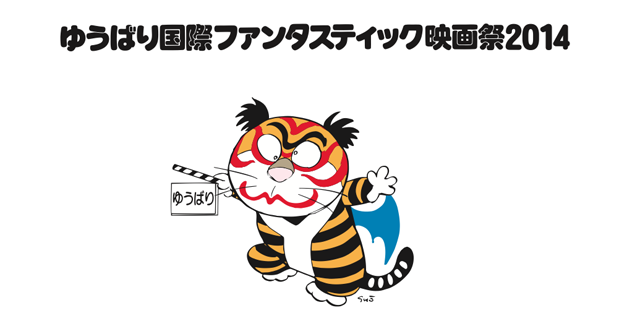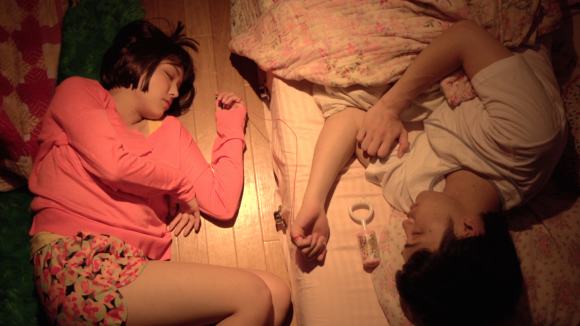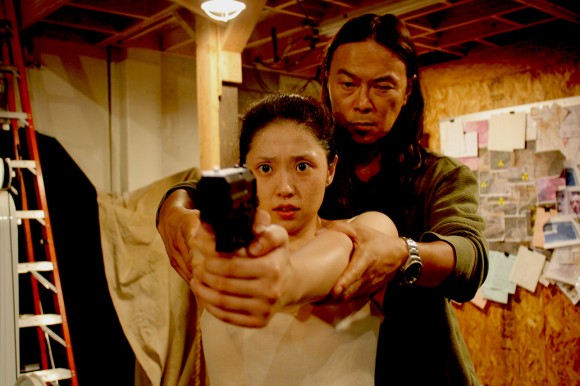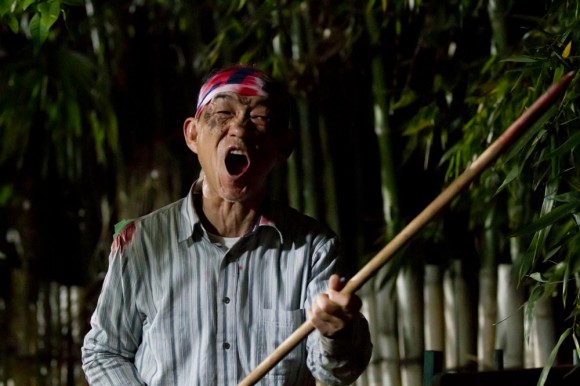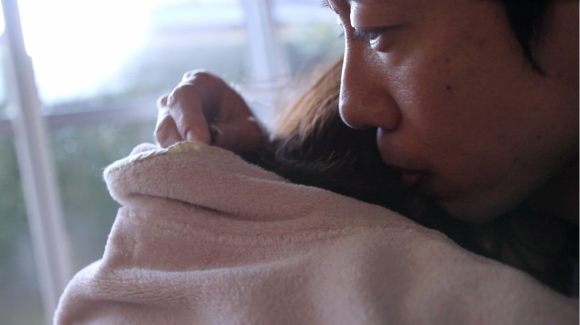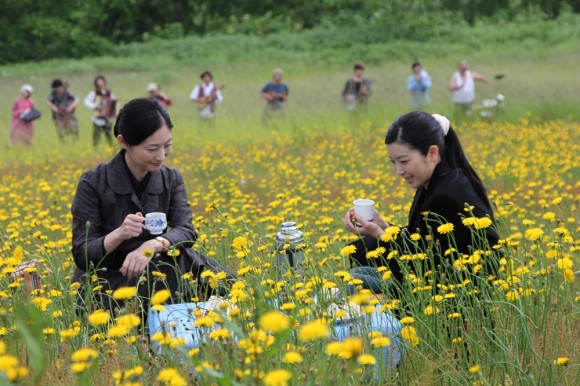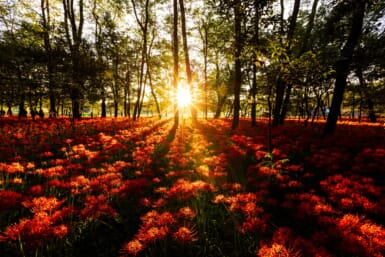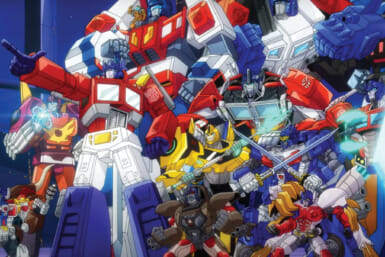Last week saw the end of the 2014 Yubari Fantastic International Film Festival (Yubari Fanta), one of the strangest and most unique film festivals to be found anywhere in the world.
By Christopher O’Keeffe
Arriving on the first day at Sapporo airport the tone for the weekend was set: within minutes, I was shaking hands with directors and stars of some of Japan’s out-there and alternative cinema world. There are no boundaries at Yubari and no VIP sections separating press and fans and filmmakers. In a town with only one izakaya and most accommodation being dorm-style sharing, we were all in it together, and I found myself drinking with these people until the small hours for the rest of the week.
Boarding the buses, the entourage of Tokyoites headed to the little town of Yubari. A former coal-mining town, it’s now populated almost entirely by old people who line the roads in little groups waving yellow flags to greet the approaching buses. Accompanied by Melon Kuma, the town mascot, the friendly obasans gave out hot potatoes to make a warm welcome to the cold town.
What followed was four days of some of the most diverse and underground cinema that Japan has to offer. The emphasis is of course on the fantastic, and so fantasy, comedy, sci-fi, and horror are some of the most common genres, but many films were a mash-up of styles and influences. The quality varied considerably—this is a place where first-time filmmakers come to show off their efforts—but most of it’s interesting in some form or other, be it a misguided sex-comedy or nonsensical time-travel adventure. All-day film marathons turn into all-night drinking sessions once the sun descended over the snow-capped mountains. This is a one-horse town and the aforementioned izakaya is the only place to go. Every night it’s bursting with filmmakers and fans, young and old, drinking, laughing and discussing projects.
Yubari is an absolute blast and well worth a ticket to Hokkaido. Take the trip north and you’ll be rewarded with the chance to see films unlikely to be screened anywhere else and the opportunity to rub shoulders with the stars of some of Japan’s biggest cult movies. Directors Yoshihiro Nishimura (Tokyo Gore Police), Noboru Iguchi (Dead Sushi, The Machine Girl) were present, as was Audition actress Eihi Shiina, judging the competition and performing her famous “kiri kiri” scene from the movie on one lucky fan. The festival is like Fuji Rock in many ways: after coming once many people return year after year to relax and hang out with friends of similar tastes outside the confines of Tokyo.
As for the movies, there’s plenty to recommend, and hopefully some of them will come to cinemas soon. Lisa Takeba won the Grand Prix in the off-theatre competition for her film The Pinkie, taking home ¥200,000 with which she must make a new film to bring back next year. The film is a bizarre comedy in which a quirky stalker clones the object of her desire from his pinkie finger. It’s funny and creative and the prize offers a great boost for an emerging talent. Below are five more films that stood out at this year’s event.
Fuck Me to the Moon
With its brazen title and explicit program picture, this didn’t appear to be more than a cheap sex flick, so it came as a wonderful surprise to find a keenly observed and charming comedy. Two best friends, dubbing themselves Ghetto-boy and Nerd Professor, work dead-end jobs and hang around Tokyo clubs as they pursue their obscure musical dreams. One night they meet and bring home a girl named Kaguya and agree to let her stay for a while. Kaguya enjoys getting drunk and bringing home men and she agrees to a threesome with the boys if they can make music to which she can climax. The film’s charm is in the endearing performances of the three central characters—likeable people recognizable to anyone who hangs out in Tokyo’s small DJ-centric nightclubs.
Gun Woman
A gloriously over-the-top, sleazy and blood-soaked thrill ride that rockets along for its 90-minute run time. Mad surgeons, naked assassins and perverse yakuza lead this assault on the senses that had audience members squirming in their seats at the frenetic finale. Lead actress Asami, popular star of cult favorites Dead Sushi and The Machine Girl, was awarded a special prize by the festival jury for her committed performance as a former drug addict who turns ruthless assassin for the purpose of carrying out an elaborate revenge plot. Director Kurando Mitsutake took away the Special Jury Prize for the film.
Greatful Dead
This pitch-black comedy from director Eiji Uchida takes its inspiration from Japan’s rapidly aging society and the subsequent problem of “kodoku-shi”, the lonely deaths of neglected elderly people. A little girl is ignored by her parents and grows into a young woman (Kumi Takiuchi) obsessed with watching lonely people, in particular elderly people on the cusp of dying a lonely death. Finding a perfect target, an elderly man (played by screen veteran Takashi Sasano), she sets up camp to watch his sad demise only to be foiled when a Christian charity worker gives the old man hope again. Not taking this lying down, the young woman turns to murder to get back her man. A clever script, assured direction, and great performances offset the dark subject matter. Expect a release in October.
A Tale of Your Scab
Remarkably, the director of this 40-minute feature is a seventeen year old Kansai high-school student, Ryohei Ueno. Even more impressive is that the young director’s work is confident, mature and an entirely believable portrayal of a loving marriage and the development of an uncomfortable fetish. Hukiko Hananoka and Isao Kamon play a loving young couple getting on with their happy married life when the husband takes a liking to eating his wife’s scabs. The director may have undermined his mature work slightly by turning up at the post screening conference topless, with a large fake penis hanging out of his pants and throwing bags of ‘scabs’ into the squirming audience, but on the strength on his debut this young auteur is one to watch.
Seven Weeks
The festival’s closing film came from veteran director Nobuhiko Obayashi who made his name in the seventies with the cult classic fantasy horror comedy, Hausu. While Hausu was a glorious explosion of creative effects, bizarre imagery and inventive storytelling, this latest is a very different affair that retains some of the director’s trademark visual quirks. An expansive, three-hour delve into the workings of a family whose patriarch has died, the relationships of those living in the present, and the grandfather’s murky past are explored along with the changes over time of people and places and the heavy costs paid during war. It’s an ambitious and challenging project, not an easy watch, the excess of information pouring from every frame threatens to overwhelm at times, but Obayashi is an artist and his visual flair and wisdom make this worthy of anyone’s time.

